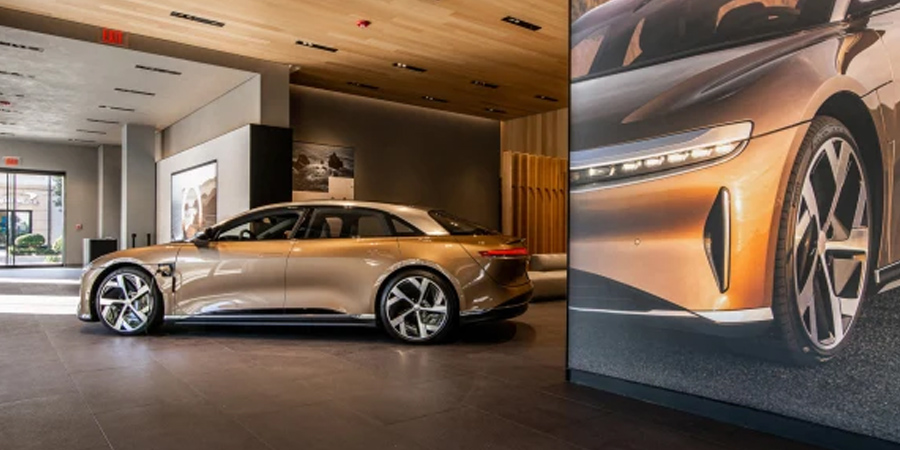Lucid Motors wanted the showroom for its luxury electric vehicle to be more inviting and educational than traditional dealerships.
Lucid Motors is a young entry in a large pool of established car brands. Unlike most of its competitors, the Silicon Valley startup is offering a very specific type of car—a luxury electric vehicle. With a battery range starting around 400 miles and a cost between $69,900 and $131,500, it’s not your everyday car.
Selling customers on a new brand—and an entirely new type of car—called for a different approach to the traditional car dealership. In several showrooms opening across the country, Lucid Motors is hoping to create a more informal environment where people can learn about the car, and maybe even buy one. After a production delay, deliveries of its first car, the Air sedan, are expected later this year.
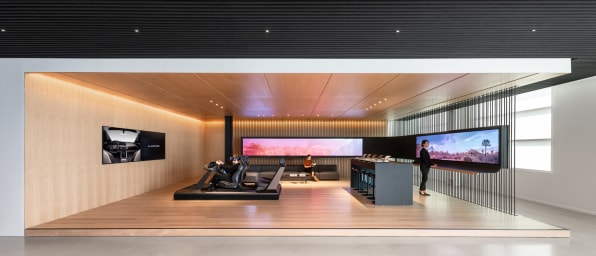
Derek Jenkins is Lucid Motors’ vice president of design, and was responsible both for the design of the Air as well as the look of the showrooms meant to sell it. He says the company focused primarily on removing some of the psychological barriers to entry that might prevent curious consumers from stepping into a luxury car dealership.
“It’s very difficult to casually stroll into a Mercedes dealer. It’s not something you generally do unless you’re genuinely looking to buy a car,” Jenkins says. “And then once you get there it’s all this glass and marble, it’s very imposing, and then you have the tradition of a high-pressure sales environment, where it’s difficult to just look at a vehicle without being heavily engaged.”
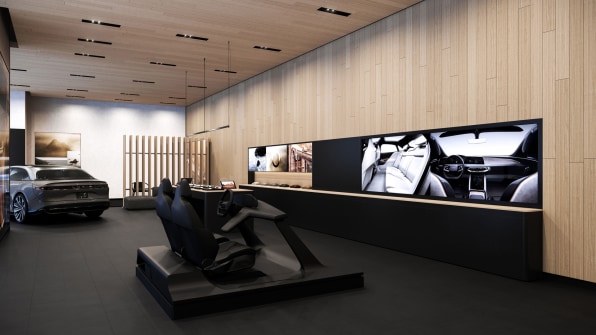
Lucid decided to take a more relaxed, more refined approach. Instead of a sales-centric product display, Lucid has modeled its new showrooms on the living room of a midcentury modern home—the kind of place a person wealthy enough to buy a $70,000 car might live. They hired Los Angeles-based Marmol Radziner, known for its work on high-end retail spaces as well as its share of modernist homes in Southern California, including renovations on a few well-known midcentury homes. Architect Ron Radziner led the design of four of Lucid Motors’ new showrooms, including some in mall locations like L.A.’s Century City Mall and some on shopping streets like West Palm Beach’s Rosemary Square.
The company refers to these showrooms as design studios, where more serious customers can pick the interior and exterior design features of their potential car, and even take a seat inside a mock-up and experience their custom design through virtual reality glasses.
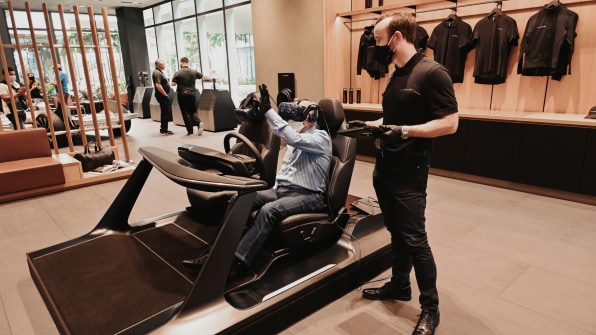
For the more casual visitor, the design studios try to strike a balance of comfort and low-pressure education, mixing a laid-back living room of sofas and coffee tables with museumlike vitrines highlighting the car’s battery, motor, and inverter technologies and the materials available as interior trim packages. Slat walls made of pale wood create subtle dividers in the showroom and textured stone tiles evoke more of a patio than a sales floor. Front and center, always, is one of the cars.
“The interior of the car plays into some of the uses of wood and maybe some of the uses of metals, but not in a way that’s meant to mimic its form,” says Radziner. “The materiality is a little bit more closely related to what a house might be that this car might sit in the garage of.”
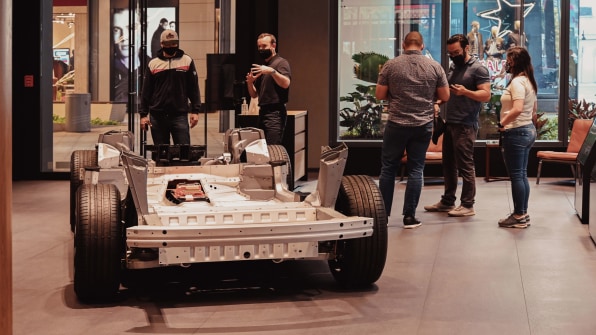
The emphasis on comfort is more than just an aesthetic choice. Jenkins says the company is very cognizant of the unfamiliar nature of the product they’re selling, even for the potential customers wealthy enough to consider stepping inside a luxury car dealership. The design studios are intended to be more like education spaces than sales floors. Lucid Motors, along with Rivian and Faraday Future, is still a novel product in a market of more recognizable names. “There’s a lot of immersion that has to happen,” Jenkins says.
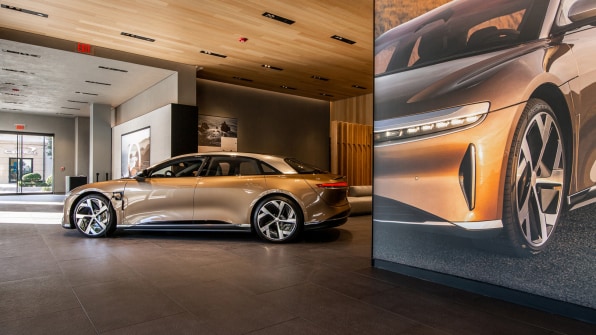
Radziner says the design of the showrooms ended up taking some lessons from his firm’s previous retail projects, but in a far different industry: fashion. He says the designs they’ve done for retail boutiques like James Perse and the Row prioritized a similar comfort level, making the stores places that are just as conducive to trying on and buying clothes as taking a load off while someone else does the shopping. That kind of relaxed environment is the way Jenkins sees Lucid Motors carving its new niche in the luxury vehicle market.
“Typically, car dealerships are just the absolute opposite of that. It’s very much a facility. We wanted this to be a place to hang out,” Jenkins says. “We wanted it to be much more of an exchange than, ‘Can I sell you a car this weekend?’”
…
This article first appeared in www.fastcompany.com
Seeking to build and grow your brand using the force of consumer insight, strategic foresight, creative disruption and technology prowess? Talk to us at +971 50 6254340 or mail: engage@groupisd.com or visit www.groupisd.com/story

